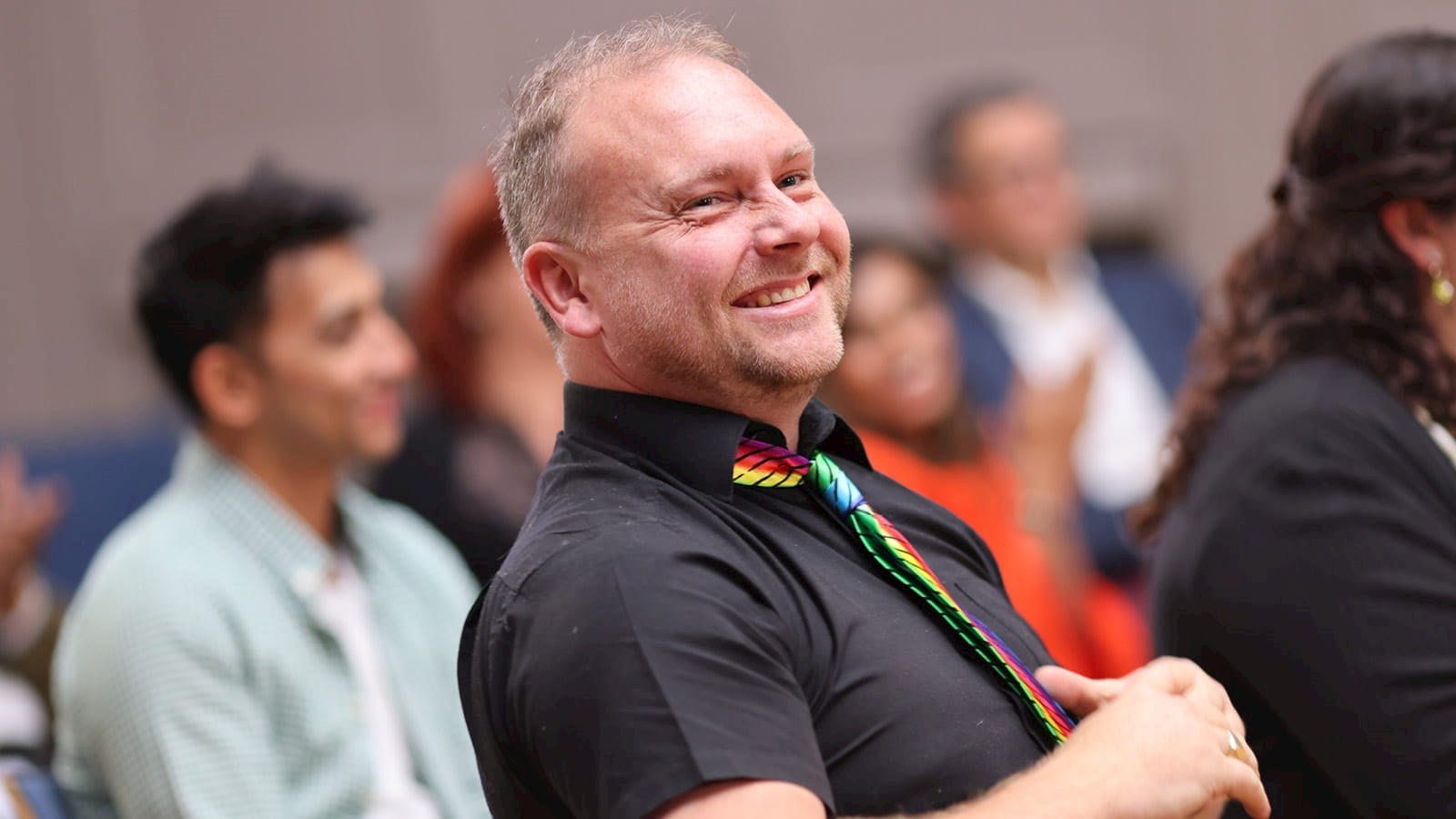Being fair to all is fundamental to diversity and inclusion. By creating open lines of communication and getting to know team members, line managers can contribute to a culture of fairness at work, as Awaze’s finance team shows.
Any effort to advance a culture of inclusion in an organisation is underpinned by the concept of fairness. But fairness is not simply about treating everyone equally. Different groups of people can face disparities in pay, promotion prospects and how they are treated by colleagues precisely because of their background or their identity. So fairness means, therefore, understanding and recognising those differences and treating people differently as a result.
For those running organisations, this requires having to look at a very wide range of activity. For example, being open and transparent about the pay gaps in your organisation and then closing those gaps over time, offering flexible working opportunities to a wide variety of staff members, or implementing policies to ensure that those suffering with mental health issues, or with additional needs and disabilities are given the time and resources they need to get better and go on to excel at their job.
“Everyone deserves an equal chance to display their skills and perform to the best of their ability,” says Andy Harbot-Taylor, Financial Controller at Awaze, a company that manages holiday rental properties and whose brands include Hoseasons, Cottages.com and James Villa Holidays. “This may include extra or specialised equipment, more flexible working hours or simply to be given the opportunity in the first place.
“However, this should be offered to everyone and anyone who requests or needs it, as long as the business is able to accommodate it. Diversity and inclusion is often referred to as equal opportunity – the fairness is in the name.”
Breadth in decision-making
Harbot-Taylor’s own experience with depression and anxiety has also helped to inform his understanding of inclusion and fairness at work. He recognises that in his first firm – in an environment in which he was competing with a small group of graduates for a manager position – he wouldn’t have ever felt comfortable talking about his own mental health experiences. “I think it would have been seen as a sign of weakness rather than discussing an underlying condition,” he says.
As a manager at Awaze, he’s been able to acknowledge his mental health issues at work with managers and colleagues, and openly talk about his experiences within internal communications and the organisation’s social media channels. “I ummed and aahed for a long time as to whether I should do this publicly or not. I was concerned whether people would treat me differently, but I felt there were probably people earlier in their careers who would recognise elements of this and I wanted to be able to say that there was someone at my point in the profession who could now talk openly about it. In fact, my company was entirely supportive and has a system of “mental health first-aiders’.”
As a result, he’s also contributed to shaping the office environment to help make it a more equal place for those struggling with mental health issues. “I asked for some private, comfortable space where people can meet, rather than raising people’s anxiety levels by bringing them into closed rooms. While a lot of disabilities are visible, mental health is one of those things that just isn’t seen. It’s important to get it acknowledged within organisations. And the more breadth you have in decision-making processes, the better the decision.” Giving employees access to these kinds of adjustments in the workplace creates the equity needed to allow everyone to work to their full potential.
A fairness culture
Fairness is embedded in the day-to-day operations of Awaze “from early finishes for class nativities or sports days, last-minute days off for childcare, providing prayer rooms or flexible working hours during fasting periods, or simply being there to listen in regular one-to-one meetings that cover the wellbeing of staff – not just work performance. No reasonable request is turned down and all requests are listened to, discussed openly and communicated to the rest of the team,” Harbot-Taylor adds.
Communication is a crucial part of this. If team members don’t feel able to communicate to their manager their issues or needs, any areas in an organisation where fairness or equity are lacking won’t be clear. And managers play a big role in enabling open lines of communication. “As far as I’m concerned, diversity and inclusion is about recognising that everyone needs equal opportunities,” Harbot-Taylor says. “The challenge is to be open enough that people who require those things feel comfortable in asking for them. I would like to think that someone can come to me and state their needs.”
Building this kind of trust in a relationship between managers and their staff requires openness and honesty on the part of a manager and having an open-door policy that allows employees the chance to always share any concerns. It’s helpful for managers to ask employees what is most important to them and learn to listen effectively. Trust works both ways: if managers show they trust team members, team members are more likely to reciprocate.
It’s also important that people are not singled out or are seen to receive ‘special treatment’ as that could make their position in a team more difficult. “As a manager, it’s important to me to know my staff, understand their personal situations and requirements and be able to adapt both my leadership style and their working environment to get the most out of them. I am always open with my team, explaining my decisions and often getting them to be supportive of the other team members. In this way, it ensures a culture rather than a leadership style,” he says.
Ultimately, every manager should be interested in their team members’ lives, Harbot-Taylor concludes. That way, the people who are being managed may be more open in asking for what they need. In turn, this enables them to support diverse team members with a range of backgrounds and characteristics and create a culture of fairness at work.
How to offer adjustments to employees

- Ask employees about their needs – and listen to their answers
- Be prepared to do things differently for different people, such as allowing someone with a social anxiety disorder to have their own desk instead of hot desking
- Change equipment for those who need it
- Offer training opportunities, recreation and refreshment facilities
- Make physical changes to the workplace if needed
- Allow people who have been off work to make a phased return, including flexible hours or part-time working

